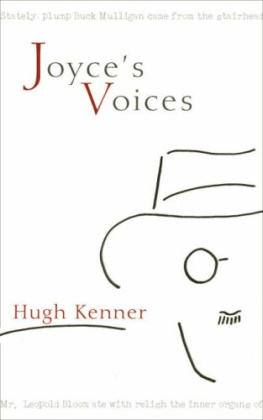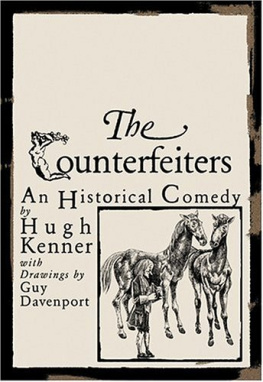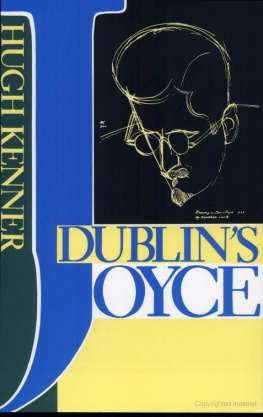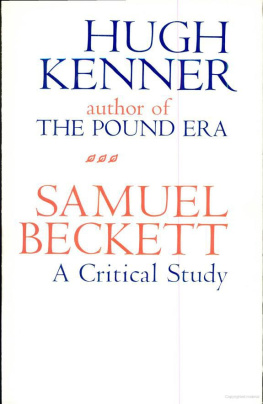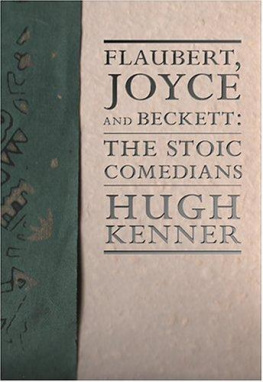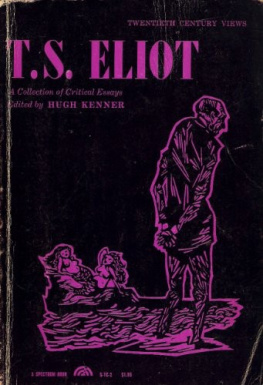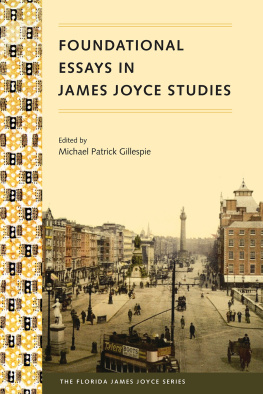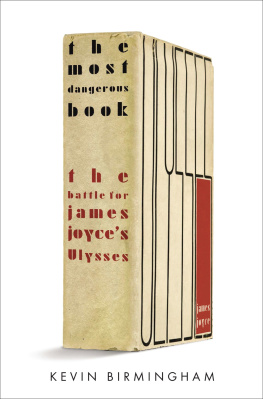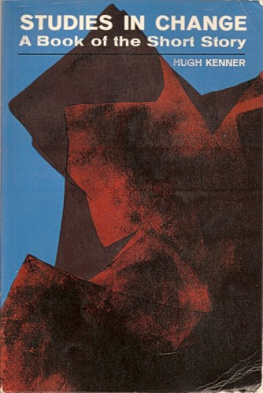Prefatory
A correspondent from Missouri enquired: "In your book, A Homemade World, on page 155, you write, ' Joyce began Ulysses in naturalism and ended it in parody, understanding more profoundly than any of his followers that naturalism cannot end anywhere else, and a law like the hidden law that governs the unfolding of styles in Ulysses brought Hemingway to self-parody at last, as though, not understanding the history disclosed by Joyce, he was condemned to repeat it.'
"Would you mind briefly explaining this sentence?..."
My reply promised this book, most of which is derived from the four T.S. Eliot Memorial Lectures I called Objectivity and After and delivered in May 1975 at the University of Kent at Canterbury, where the windows of the Great Hall of Eliot College frame a distant prospect of the towers of the cathedral. In the Chapter House near those towers the first performance of Murder in the Cathedral was rehearsed just forty years previously, and since Murder in the Cathedral bore on my theme, that view of the towers might have been framed to provide a visiting speaker with a trope. Eliot too had coopted such adventitious fact, when he dramatized in his playscript Becket's death for an audience who would sit not fifty yards from the place where Becket died. So had Joyce, staging the first scene
-ix-
of Ulysses atop a tower any Dublin reader would have known how to reach by tram.
Eliot, the sometime theorist of Experience and the Object of Knowledge, had ample reason to insist on that 1935 occasion that the martyrdom of Thomas Becket had been real and that a cult still validated it. By way of what he had called the Mythological Method, he was attempting an extended derivation from Ulysses, the book (then only twelve years old) which by his own influential account parallels verifiable fact with myth. His tactics repay attention. Borrowing a form Gilbert Murray's translations had made fashionable, the Greek Tragedy with a Chorus, he boldly exploited what had been in Periclean times its central convention, that everyone sitting in the theater knew the unchanging myth, knew what must happen. It was probably the Agamemnon he had in mind, another play in which the principal character returns from abroad amid shrieking premonitions of doom, to be exhibited to an audience which knows he is about to be slaughtered.
Greek audiences did not see heroes killed, but Eliot's is so far a Christian play as to incorporate a ritual reenactment of the martyrdom which was itself a reenactment of Calvary. So the Canterbury audience sees Thomas killed. It is then immediately told that it does not know what it has seen. It is told this by the killers, who step forward with explanations; for instance that a first step has just been taken toward "a just subordination of the pretensions of the Church to the welfare of the State," or that Thomas, determined on death by martyrdom, had arranged a "Suicide while of Unsound Mind."
-x-
These summaries correspond to possible plays about the murder of Becket. How Eliot ensured that his own play would not be confused with either of them is another subject; suffice it to observe that he did not think he had done enough when he put the happenings before us. As one of the killers reminds us, we have all been eye-witnesses. In the theater we watch what happens. Yet whether Thomas has submitted to God's will, or whether he has elaborately killed himself, is not a question that attention to the evidential will qualify us to settle.
That men should learn to merely look and listen, that attention to what was and was not evidence might deliver the methodiz'd mind from self-deception, this was a doctrine of which much began to be heard in England not long after the Civil War. And though theaters are places to look and listen, what that doctrine portended for the stage was a rapid decline of prestige and of quality. The English theater had been a place for eloquence and declamation, and these grew suspect. What acquired prestige in their place was a new mode of literary art, eventually called fiction, in which the old conventions of a tale being told were gradually subdued to the new disciplines of evidence carefully marshalled. By the beginning of the nineteenth century the word "Objectivity" had begun to attach itself to such disciplines. By the beginning of the twentieth century the novel had been for a hundred years the literary genre par excellence, and Ibsen's enthusiasts had assimilated the theater itself to the novel's canons. All seemed to be moving on wheels toward a new enlightenment, presided over perhaps by Bernard
-xi-
Shaw, whom Yeats claimed to have seen in a vision as an incarnate sewing-machine, but a sewing-machine that perpetually smiled.
And yet, just a quarter of the way into the new century it was evident that the logic of any such evolution had collapsed. James Joyce, reputedly the supreme exponent of a fiction subdued to scrupulous documentation, had published Ulysses, which few could obtain and fewer understand, and those who claimed to speak of Ulysses with confidence were explaining that its details were ordered by a myth. A myth--it had been myths that the discipline of objectivity had offered to banish. Moreover, T. S. Eliot was explaining--in The Dial, November 1923--that this use of myth had the importance of a scientific discovery: the sort of borrowed prestige Objectivity had once claimed. Eliot himself was writing Sweeney Agonistes, the title of which suggests how the mythological method hoped to invade the theater itself. And though he did not finish Sweeney, within ten years he had relied on the method for a play he did finish, Murder in the Cathedral.
The whole story deserves careful looking into. As the great age of twentieth-century Modernism recedes, it grows increasingly clear that the decisive English-language book of the century was Ulysses, the first pivotal book in English since Paradise Lost. Its example underlay The Waste Land, which terminated Eliot's first poetic period. And it directed the decisive reordering of the early Cantos which Pound undertook early in the 1920's. Pound resisted, and Eliot as we shall see passed over in silence, the fact that Ulysses commences in tacit adherence to the canons of naturalism, of Objectivity, and then disorients readers by deserting them, for reasons that have never been satisfactor

